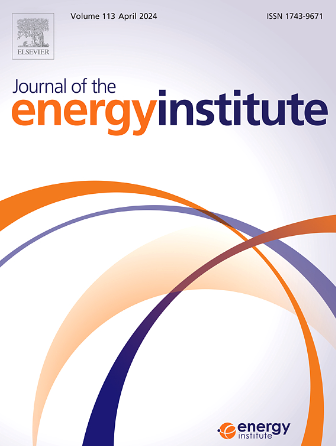Bio-oil production and catalytic upgrade to value added product: A review on recent technologies
IF 5.6
2区 工程技术
Q2 ENERGY & FUELS
引用次数: 0
Abstract
The urgent need of an alternative to fossil fuel has increased the attention towards renewable sources of fuel significantly. Organic matter which are produced through photosynthesis are termed as biomass. Lignocellulosic biomass can be greatly exploited as source of renewable energy, chemicals and materials. Thermochemical conversion like pyrolysis or gasification of lignocellulose biomass produce biogas or bio-oil which needs to be upgraded to transportation fuel. But several undesirable qualities like high viscosity, instability, low energy density, polymerization and corrosion are associated with bio-oil produced from lignocellulosic biomass due to their high oxygen content. Several techniques are available to upgrade the bio-oil which omits the undesirable qualities. The direct relationship between different characteristics of lignocellulosic biomass and quality of bio-oil along with different technologies for bio-oil production are discussed in this review. This review also emphasizes on several upgradation techniques along with the catalysts. The technoeconomic analysis discusses the economic potential of bio-oil and concentrate on the cost-effectivity. Finally, the challenges and future research directions are further analysed in this review.
生物油生产及催化转化为高附加值产品的最新技术综述
化石燃料替代品的迫切需要大大增加了对可再生燃料来源的注意。通过光合作用产生的有机物被称为生物量。木质纤维素生物质可作为可再生能源、化学品和材料的重要来源。木质纤维素生物质的热解或气化等热化学转化产生的沼气或生物油需要升级为运输燃料。但是,由于高氧含量,木质纤维素生物质生产的生物油具有高粘度、不稳定性、低能量密度、聚合和腐蚀等不良特性。有几种技术可用于升级生物油,以消除不良品质。本文综述了木质纤维素生物质的不同特性与生物油质量的直接关系以及不同的生物油生产技术。本文还重点介绍了几种催化升级技术。技术经济分析讨论了生物油的经济潜力,并着重分析了其成本效益。最后,本文进一步分析了面临的挑战和未来的研究方向。
本文章由计算机程序翻译,如有差异,请以英文原文为准。
求助全文
约1分钟内获得全文
求助全文
来源期刊

Journal of The Energy Institute
工程技术-能源与燃料
CiteScore
10.60
自引率
5.30%
发文量
166
审稿时长
16 days
期刊介绍:
The Journal of the Energy Institute provides peer reviewed coverage of original high quality research on energy, engineering and technology.The coverage is broad and the main areas of interest include:
Combustion engineering and associated technologies; process heating; power generation; engines and propulsion; emissions and environmental pollution control; clean coal technologies; carbon abatement technologies
Emissions and environmental pollution control; safety and hazards;
Clean coal technologies; carbon abatement technologies, including carbon capture and storage, CCS;
Petroleum engineering and fuel quality, including storage and transport
Alternative energy sources; biomass utilisation and biomass conversion technologies; energy from waste, incineration and recycling
Energy conversion, energy recovery and energy efficiency; space heating, fuel cells, heat pumps and cooling systems
Energy storage
The journal''s coverage reflects changes in energy technology that result from the transition to more efficient energy production and end use together with reduced carbon emission.
 求助内容:
求助内容: 应助结果提醒方式:
应助结果提醒方式:


